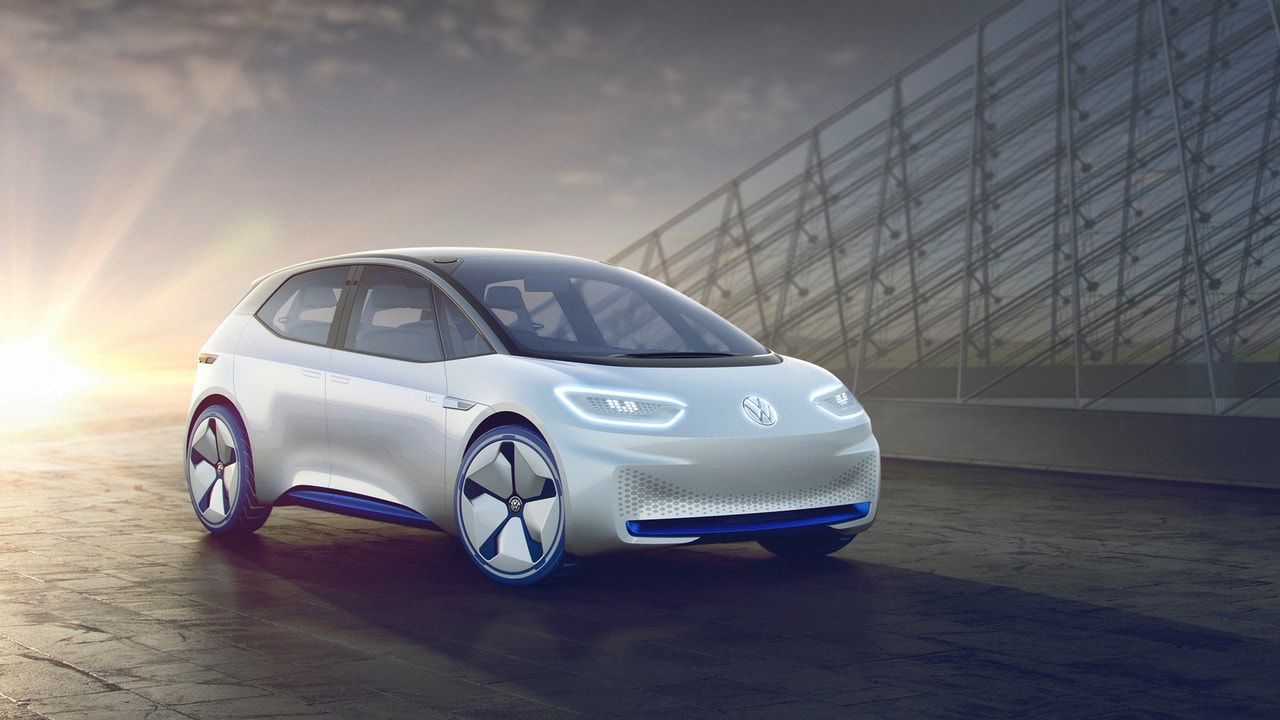Volkswagen Will Spend $40 Billion On EVs And Autonomous Tech By 2022

Highlights
- Most of this investment will go into the electrification of all models
- Rest will go into autonomous driving tech and new mobility services
- VW has also optimized its plant and workforce assignment for future
Volkswagen has been at the forefront of innovation especially when it comes to the electric mobility. In fact the company recently announced that it would be investing $14 billion towards making electric cars in China and now there's some more investment ear marked for more than just electric cars. The Group will invest billions of euros in electric mobility, autonomous driving, new mobility services and digitalization over the coming years. According to the outcome of the Group's planning round for 2018 to 2022, which the Supervisory Board of Volkswagen Aktiengesellschaft discussed at its meeting today, expenditure totalling more than $40 billion are to be made in these future technologies by the end of 2022.
Also Read: 2018 Volkswagen Virtus Unveiled in Brazil
While most of this investment will go into the electrification and hybridization of all models which come under the Volkswagen Group, autonomous driving tech and new mobility services will also form a big part of the investment. "With the planning round now approved, we are laying the foundation for making Volkswagen the world's number one player in electric mobility by 2025", said Matthias Muller, CEO of Volkswagen Aktiengesellschaft, after the regular Supervisory Board meeting. "We are reinventing the car. We are making targeted investments in digitalization, autonomous driving, electric mobility and new mobility services by providing the necessary funds from our own resources. We are, however, doing so without sidelining existing technologies and vehicle projects, since this is how we will earn our money for the foreseeable future. Given its brands and potential for synergy, I am convinced that the Volkswagen Group will master this balancing act like no other company in our industry."

The VW ID Concept were showcased recently
As part of the planning round, the Group has also optimized its plant and workforce assignment for the challenges to come. In this process, the production network linking the brands has been made even more efficient. The main highlights were that for the launch of Europe's first series production of electric vehicles on the MEB platform, the Zwickau site will be remodeled into a pure-play e-mobility plant. This will lay a key foundation for the electrification and hybridization of the Group's product portfolio. Other location decisions at the individual brands will be made as the Roadmap E is rolled out further. The other decision is that from the end of 2018, the entire Passat family will be concentrated at the Emden site and finally the VW Golf family will be bundled in Wolfsburg from the next vehicle generation onward.
"The entire automotive industry is facing fundamental changes in the coming years, which will provide great opportunities, but also require us to put in tremendous efforts", continued Muller. "We have a convincing plan. Our financial position is robust. We have the experience and the talent. And wherever skills are lacking, we will build the necessary expertise and strengthen our teams. The planning round that has just been approved provides the framework. Now we have to get to work quickly and move toward shared success."
The Volkswagen Group expects Brazil, China, Russia and North America to be the main growth drivers in the coming years. On the other hand, the ambitious CO2 targets imposed worldwide present major challenges for all automakers. Volkswagen Group's Roadmap E suggested that one in four new vehicles produced by the Group will be a battery-only electric vehicle. Depending on how the market develops, this could mean up to three million e-cars a year. We already told you that the company is planning to electrify its entire model portfolio by 2030. This means that by then there will be at least one electric variant of each of the Group's around 300 models. To this end, the Company has invited tenders for one of the largest purchasing volumes ever, with plans to spend over £50 billion on battery cells.
Related Articles
Latest News
Popular Volkswagen Models
 Volkswagen VirtusEx-Showroom Price₹ 10.89 - 19.15 Lakh
Volkswagen VirtusEx-Showroom Price₹ 10.89 - 19.15 Lakh Volkswagen TiguanEx-Showroom Price₹ 35.17 Lakh
Volkswagen TiguanEx-Showroom Price₹ 35.17 Lakh Volkswagen TaigunEx-Showroom Price₹ 11.7 - 19.74 Lakh
Volkswagen TaigunEx-Showroom Price₹ 11.7 - 19.74 Lakh Volkswagen New TiguanEx-Showroom Price₹ 35.17 Lakh
Volkswagen New TiguanEx-Showroom Price₹ 35.17 Lakh Volkswagen Tiguan R-LineEx-Showroom Price₹ 49 Lakh
Volkswagen Tiguan R-LineEx-Showroom Price₹ 49 Lakh Volkswagen Virtus GTEx-Showroom Price₹ 17.48 - 19.35 Lakh
Volkswagen Virtus GTEx-Showroom Price₹ 17.48 - 19.35 Lakh














